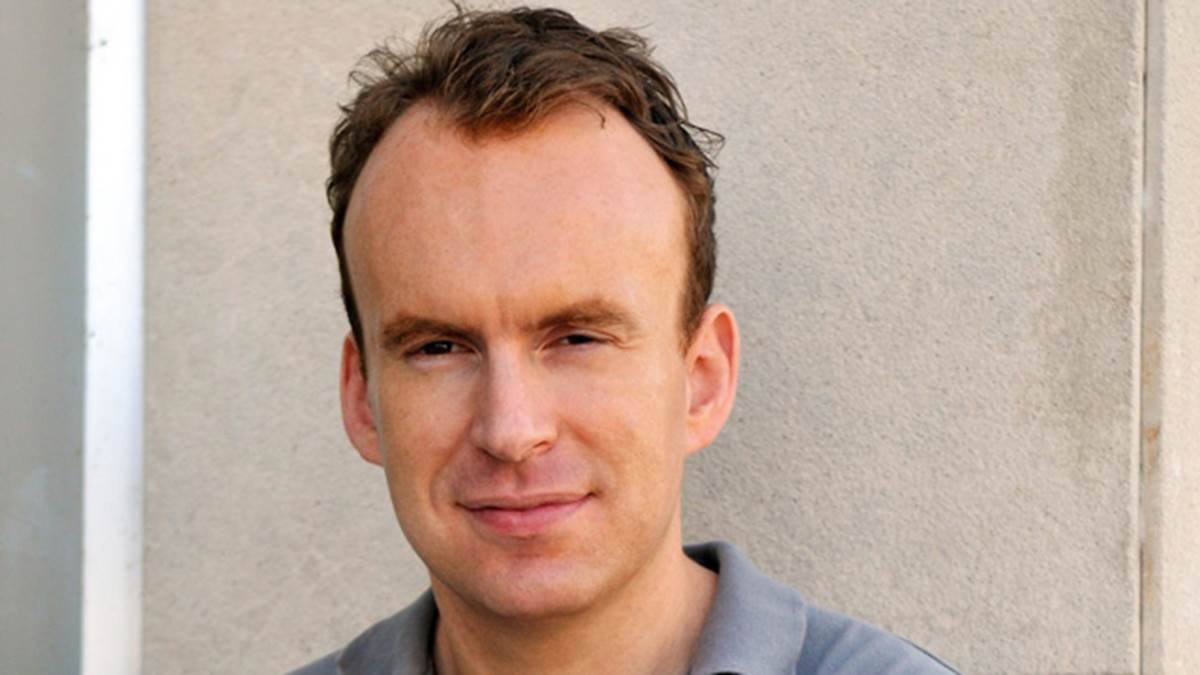30 things to tell a book snob
Published on: 19 April 2013 Author: Matt Haig
The award-winning national treasure Matt Haig, who's work includes Shadow Forest and A Boy Called Christmas, became our eighth Writer in Residence back in 2013. In this blog Matt listed all the counter arguments to his least favourite people, book snobs.

It is World Book Night next week and World Book Night is a good thing, because it is fun and helps get books into the hands of people who wouldn't otherwise read them.
And people should read books. Books are good.
But many are intimidated. One of the reasons people are put off reading is snobbery. You know, the snobbery that says opera and lacrosse and Pinot Noir and jazz fusion and quails' eggs and literary fiction are for certain types of people and them alone?
There is something innately snobby about the world of books. There is the snobbery of literary over genre, of adult books over children's, of seriousness over comedy, of reality over fantasy, of Martin Amis over Stephen King. And it is unhealthy. If books ever die, snobbery would be standing over the corpse.
So here is my message to book snobs:
1. People should never be made to feel bad about what they are reading. People who feel bad about reading will stop reading.
2. Snobbery leads to worse books. Pretentious writing and pretentious reading. Books as exclusive members clubs. Narrow genres. No inter-breeding. All that fascist nonsense that leads commercial writers to think it is okay to be lazy with words and for literary writers to think it is okay to be lazy with story.
3. If something is popular it can still be good. Just ask Shakespeare. Or the Beatles. Or peanut butter.
4. Get over the genre thing. The art world accepted that an artist could take from anywhere he or she wanted a long time ago. Roy Lichtenstein could turn comic strips into masterpieces back in 1961. Intelligence is not a question of subject but approach.
5. It is harder to be funny than to be serious. For instance, this is a serious sentence: 'After dinner, Alistair roamed the formal garden behind this unfamiliar house, wishing he had never betrayed Lorelei's trust.' That took me eight seconds to write. And yet I've been trying to write a funny sentence for three hours now, and I'm getting hungry.
6. Many of the greatest writers have been children's writers.
7. It is easy to say something to people who are exactly like you. A bigger challenge lies in locating that universal piece of all of us that wants to be wowed, and brought together by a great story. There isn't a human in the world who wouldn't enter the Sistine Chapel and not want to look up. Does that make Michelangelo a low-brow populist?
8. It does not matter about who the author is. The only thing a book should be judged on is the words inside.
9. Martin Amis once moaned on the radio that there were too many writers talking across the table to their readers rather than down to them. This was the point I went off Martin Amis.
10. You don't have to be serious about something to be serious about something.
11. You don't have to be realistic to be true.
12. You are one of 7,000,000,000 people in the world. You can never be above all of them. But you can be happy to belong.
13. The only people who fear people understanding what they are saying are people who have nothing really to say.
14. Books are not better for being misunderstood, any more than a building is better for having no door.
15. Shakespeare didn't go to university, and spelt his name six different ways. He also told jokes. (Bad ones, true, but you can't knock him for trying.)
16. Avoiding plot doesn't automatically make you clever. (See: Greene, Tolstoy, Shakespeare.)
17. Freedom is a process of knocking down walls. Tyranny is a process of building them.
18. There can be as much beauty in short (words, sentences, paragraphs, chapters) as long. Sparrows fly higher than peacocks.
19. Snobs are suckers, because they have superficial prejudices.
20. The book I am least proud of, that I didn't work hard enough on, was my most ostentatiously highbrow one.
21. Reading a certain book doesn't make you more intelligent any more than drinking absinthe makes you Van Gogh. It's how you read, as much as what you read.
22. Never make someone feel bad for not having read or not read something. Books are there to heal, not hurt.
23. Imagination is play. Snobbery is the opposite of play.
24. I used to be a snob. It made me unhappy.
25. Simple isn't always stupid. When I write a first draft it is complicated. There is mess. The second and third and fifteenth drafts try and get it to make sense, to trim away the frayed edges.
26. Stephen King was right. Books are 'portable magic'. And everyone loves magic.
27. Inclusion is harder than exclusion. Just ask a politician.
28. The brain can absorb many things. So can a novel.
29. For me, personally, the point of writing is to connect me to this world, to my fellow humans. We are all miles apart. We have no real means of connecting except via language. And the deepest form of language is storytelling.
30. The greatest stories appeal to our deepest selves, the parts of us snobbery can't reach, the parts that connect the child to the adult and the brain to the heart and reality to dreams. Stories, at their essence, are enemies of snobbery. And a book snob is the enemy of the book.
Topics: Writer in Residence, Features






Add a comment